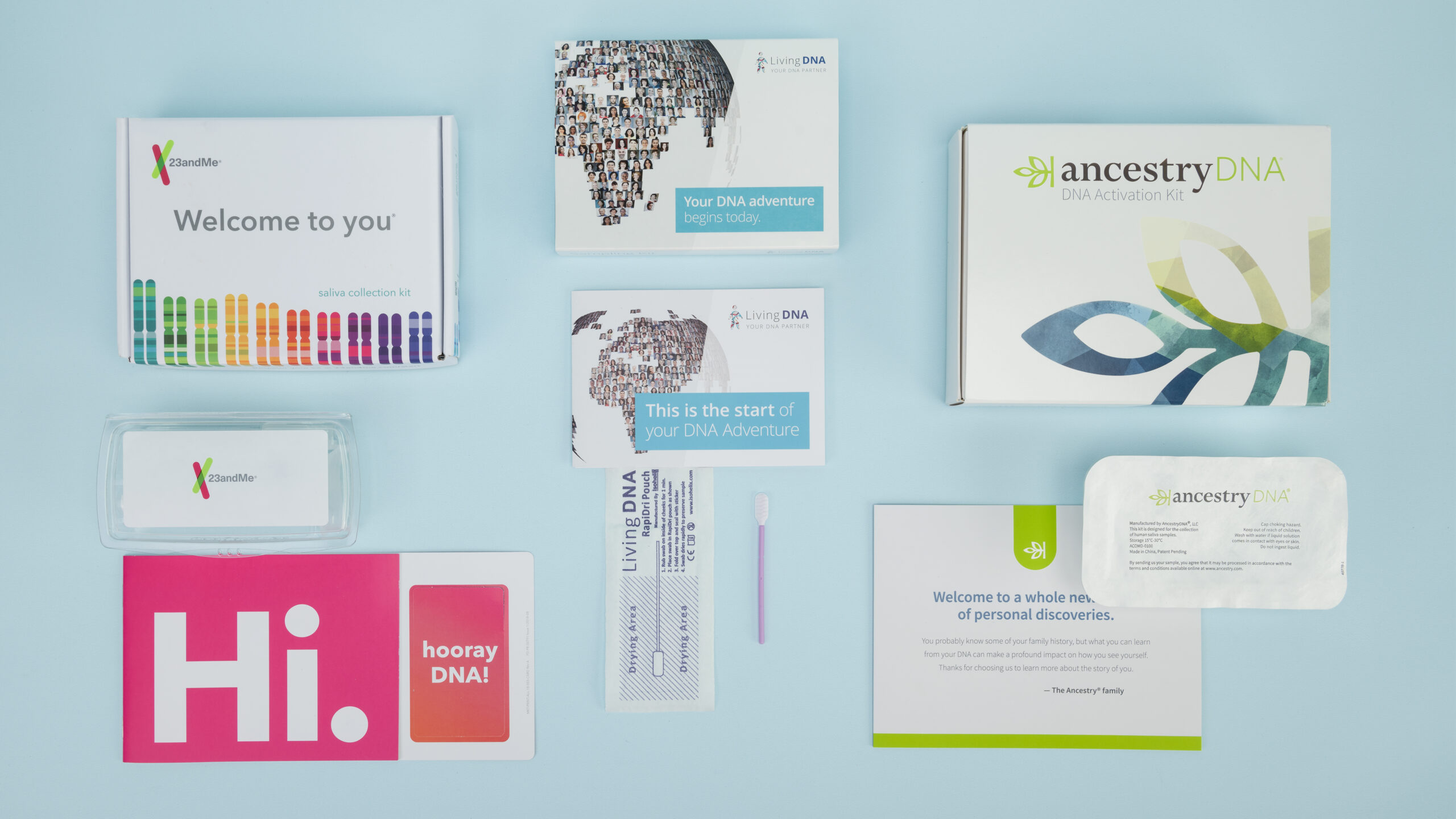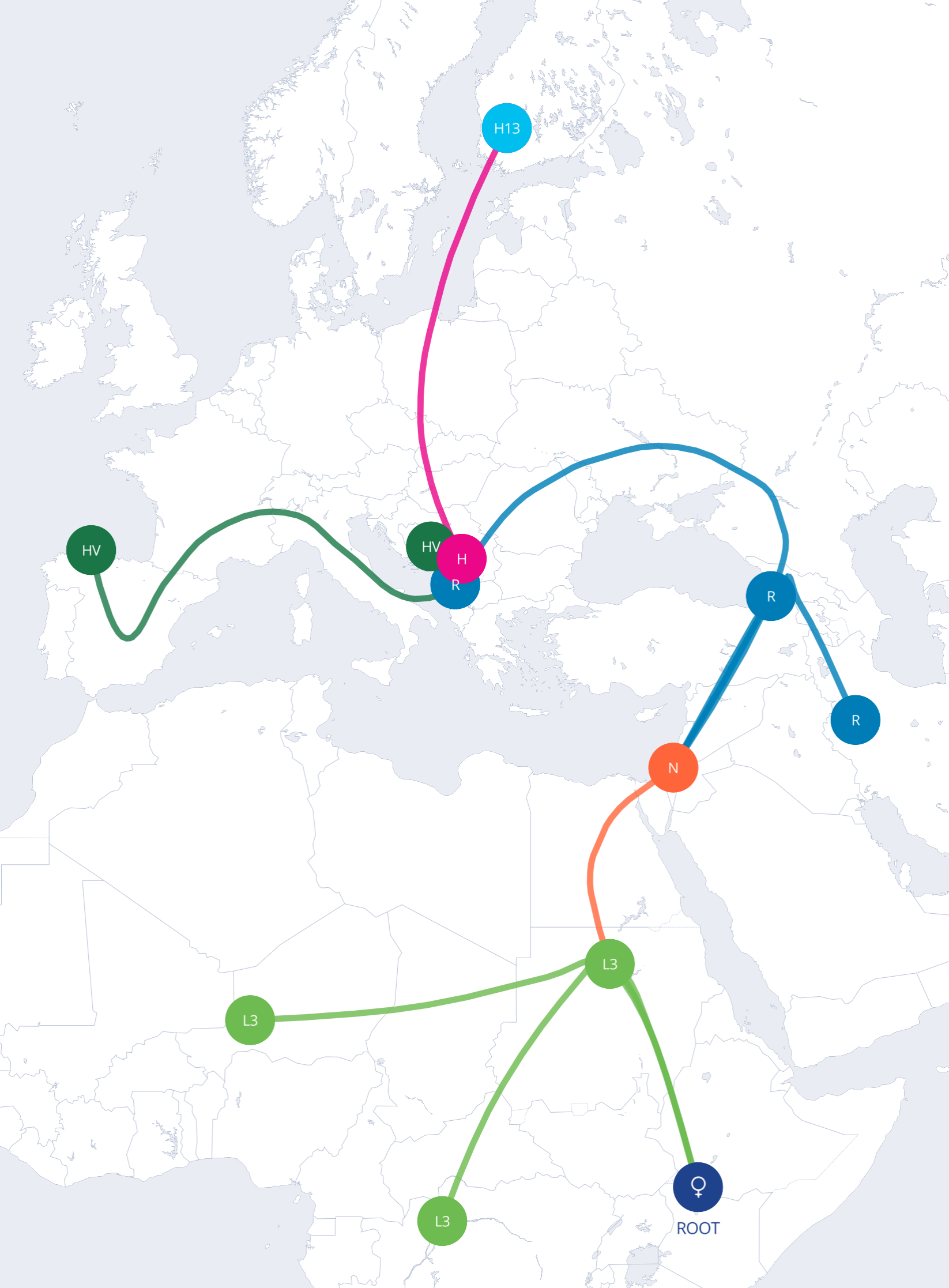

In This Article
In This Article
The following diseases are just some that can run in your family, especially if you and your relatives have a history of these conditions:

Source: 123rf
You have a higher chance of contracting these diseases if your family also has them. These aren’t the only ones, but these are usually the first few that doctors look out for.
Still, it’s important to remember that a family history doesn’t guarantee you’ll get a disease. Understanding your family health history helps you evaluate your risks. Moreover, a healthy lifestyle and a good environment matter.
To lower your risk, eat well, stay active, and talk to a doctor if you’re concerned. A geneticist or healthcare professional can give you personalized advice and suggest genetic testing to understand your risk better.
Most people consider a disease that affects two or more family members within the same biological family something that runs in families.
There are several reasons why a medical condition might run in a family, including:

Source: 123rf
Usually a disease that runs in the family is a genetic disorder, but your susceptibility to other diseases may increase if you are raised in an environment that may allow those diseases to thrive.
For example, if your family stays in a polluted area and leads an unhealthy lifestyle with a poor diet, you may be prone to contracting the same diseases your relatives have.
You may also exacerbate the possibility of an inherited disease if you are not in a good environment or have poor hygiene.
Know Your DNA Reviews

Don't miss out on the opportunity to learn more about yourself. Read our best DNA test page to find the best one for you.
Because genes are passed down from parent to offspring, any changes that may have occurred in their genes (called mutations) will be passed down to their child.1 Your child is inheriting copies of your DNA, and if you already have mutated sequences or genes, they will get them too.
It’s also possible for new mutations to occur in your child’s DNA, which they will pass down to their offspring if they have any.
Mutated genes do not function the same way as normal genes—this is what causes the genetic disorder. Sometimes it’s just one mutation in a gene. Other times, several can work together to create an even more complex web of genetic illnesses.
A gene mutation is caused by random errors in the duplication process of DNA.4 Sometimes, the sequence of the nucleotide bases in your DNA (adenine, thymine, guanine, and cytosine) gets jumbled randomly, or even because of the presence of damaging agents like radiation or chemicals.
These mutations either cause genetic disorders or increase your susceptibility to them.

Source: 123rf
If you inherit the gene for a genetic disorder, you won’t always show signs of it or even contract it. This is because we each have two copies of genes contained in our chromosomes—one copy from each parent. Even if you inherit one copy of a mutated gene, you won’t exhibit signs or symptoms of that disorder. This is called recessive inheritance.1
Genetic disorders inherited in a recessive pattern need two mutated copies in order to manifest. So even if you have one copy, you won’t technically exhibit the disease.
However, other mutations can manifest even with just one copy. These are dominant disorders. Dominant inheritance patterns mean that even just one faulty copy of a gene is enough to pass the disease on to your offspiring.
If you don’t have a genetic disorder but you carry the gene for it, you are a carrier.2
Some genetic diseases “skip” generations, but only because the inheritance pattern doesn’t always produce an affected child.
If you carry a recessive gene and have children with someone who doesn’t have that same gene mutation, your children may not inherit the condition. However, if you do have children with someone who has the same gene mutation, you run the risk of producing an affected child. So even if you didn’t have the disorder, your children may get it.

Source: 123rf
There are four different types of genetic disorders, namely:
These occur when variations (or mutations) occur in the DNA sequence of one specific gene.3
This affects the product that the gene codes for, causing changes or absences. The features of each disorder are related to the specific affected gene and the job of that gene.
A multiple-gene mutation, often called polygenic or multifactorial inheritance, involves changes in multiple genes working together to influence a trait or predisposition to a condition.
The mutations can work with each other and environmental factors to determine a person’s traits, risk of diseases, or other complex characteristics. Unlike simple variations in one gene, multiple gene mutations involve a more complex web of genetic factors.
Chromosomal changes mean variations in the structure or number of chromosomes inside the cells.
These changes can happen when the cells divide and sometimes lead to conditions like Down syndrome, where there’s an extra chromosome. They can be inherited or occur unexpectedly during growth.

Source: 123rf
These mutations are changes in the genes of tiny cellular powerhouses called mitochondria.
Mitochondrial mutations can affect how these powerhouses work and cause health problems because they help fuel our cells. Unlike most genes, which come from both parents, mitochondrial DNA is passed down by the biological mother.
Mutations or variations are caused by:
There isn’t much you can do if you have an inherent risk for something due to a random error alone. It’s still smart to make healthy choices, but ultimately, you can’t fix the error.
Some of the most common genetic diseases that aren’t prevented by lifestyle changes include:
If you’d like to know more about your risk of inheriting these diseases, you can turn to genetic testing and ask your healthcare provider or genetic specialist for guidance and interpretation.
Environmental risks run in families due to shared behaviors and living conditions.
If your risk is purely environmental, you can make changes that will significantly reduce your risk. In this case, your risk is not genetic. However, the disease may run in your family because more than one person was exposed to a certain damaging environmental factor.
For example, if your mother developed lung cancer after smoking cigarettes most of her life, there’s a chance second-hand smoke exposure affected you, making you more at risk for lung cancer. You weren’t born with a lung cancer gene, but your environment created a higher risk.
However, if you choose not to smoke and avoid other things that increase your risk of cancer, you’ll have a smaller chance of developing the disease despite your original environmental risk.

Source: 123rf
Other factors such as pollution in the area you grew up in or poor air quality can also affect your chances of getting sick. While these diseases are not something you inherit genetically, living in areas where hygiene and cleanliness are luxuries can increase your risk.
This is why certain communities that live in less-developed areas suffer from similar illnesses.
You’re more likely to develop a disease if you have both a genetic and an environmental risk for it.
You’re still more at risk than the average person, even if it’s partly environmental. This might sound frightening, but ultimately, knowing your genetic risks and knowing there are choices you can make to reduce those risks is empowering and can help you better figure out what lifestyle changes to make.
For example, to reduce your risk of health issues linked to genetic factors, you can:
For example, consider a woman with an increased risk of developing ovarian cancer because her mother and grandmother had it. She understands this and implements a healthy lifestyle to counteract her risk factors. On top of that, she visits her doctor annually for an examination and undergoes ovarian cancer screenings beginning early in life.
This woman has an increased risk for ovarian cancer because of her family health history. However, she’s managing the risk as much as possible. And if she still develops the disease despite these measures, doctors will identify it early, making it highly treatable.

Source: 123rf
Some diseases that have a link to family history but are also influenced by lifestyle choices:
Even if you can’t avoid a chronic disease or severe illness, understanding its link to your family history can help you manage it better. Also, discuss your family history with your doctor for early screenings.
There are instances in which lifestyle changes have little to no effect on someone’s likelihood of having a genetic disease.
For example, nothing can be done to reduce someone’s risk of cystic fibrosis.
These single-gene disorders are passed on from parents and recognized early in life. The only thing that can be done is for parents to determine their risk of passing along the risk of a disease to their children. Then, they can decide whether or not to have biological children, given that risk.
Birth defects and genetic diseases are some of the primary reasons people undergo genetic testing. It’s not to determine if they are at risk. It’s to see if they carry a high risk of passing something detrimental to their potential children. From there, they can make a more informed decision and explore other options.
If you are curious about what diseases run in families and whether or not any of these genetic risks could affect you or your children, you should speak to your doctor. They can suggest genetic testing to screen for issues of greatest concern.
Some at-home genetic testing can also help you identify risks. This is a less expensive place to begin if you aren’t ready to undergo professional testing.
It’s understandable why someone with a family health history of serious medical issues would want to undergo genetic testing. Identifying your risks helps you make smart choices about your health.
Genetic testing can help you:
However, it can also come with downsides, such as:
Emotionally, it can feel overwhelming to know your family health history puts you at risk for severe health problems. This is especially true when lifestyle changes don’t affect your genetic risk.
Before undergoing genetic testing to determine how your family health history could affect you, make sure you are prepared for the results. Some people want as much information as possible, even bad news.
Others would prefer not to know their risk if there is very little they can do to change their situation. It’s important to be in the right frame of mind and have the support you need before exploring your family health history.

Source: 123rf
Yes, you can. At-home DNA tests are pretty common and very accessible nowadays, but make sure you don’t take all the results at face value.
The accuracy of your results depends on several factors, such as:
While most of these at-home DNA tests do a good job of analyzing your DNA, make sure you also have a genetic counselor or your healthcare provider take a look at your results. Don’t panic right away at any mention of genetic risk in your results. Ask your doctor for further instruction and guidance first.
That way, you can best make more informed decisions about any lifestyle or diet changes you’ll make instead of making wild guesses on your own.
Your DNA test results can be a great starting point for circumventing any health issues that may arise, so make sure to accomplish the test properly and get an expert opinion as well.
Know Your DNA Reviews

Looking for a DNA test that's accurate and can tell you about your health and heritage?

